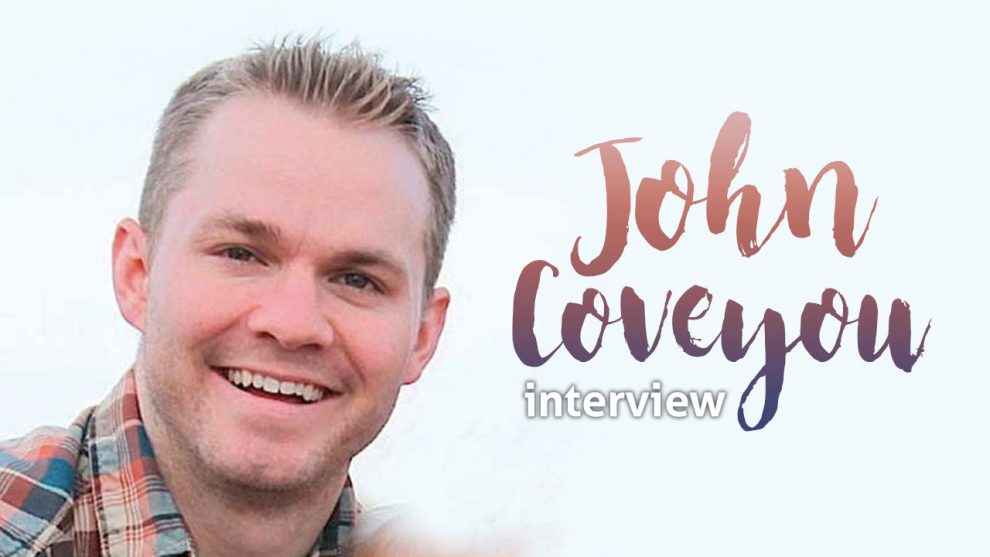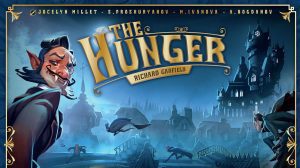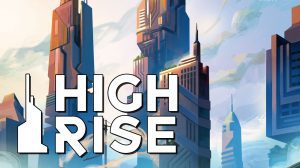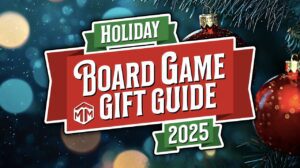Join Meeple Mountain as we welcome John Coveyou, the owner and founder of Genius Games, to the interview table! Genius Games is the publisher of several science-themed games such as Ion, Covalence, Peptide, and Cytosis. Welcome John!
Let’s start off with an easy question, what games have you been playing lately? Is there a particular standout for you? What is it about this game that keeps you coming back?
I’m currently playing Gloomhaven here in St. Louis, always enjoy a well-crafted light game like For Sale, but one game that I ALWAYS come back to is Stone Age. I think it is one of the most elegant and easy to learn games, and yet the decision making and strategic options are incredibly deep.
Just to give us a little background, when you’re not creating board games, what do you do for a living?
I run Genius Games full time, so I basically live and breathe board games publishing all day long. I also teach courses in Game Design, Entrepreneurship in Games and Crowdfunding at Webster University in St Louis. When I’m not creating board games, I play floor hockey on two leagues, and I LOVE having a good discussion over a beer with friends 🙂 And of course, I’m hanging out with my wife and two kiddos!
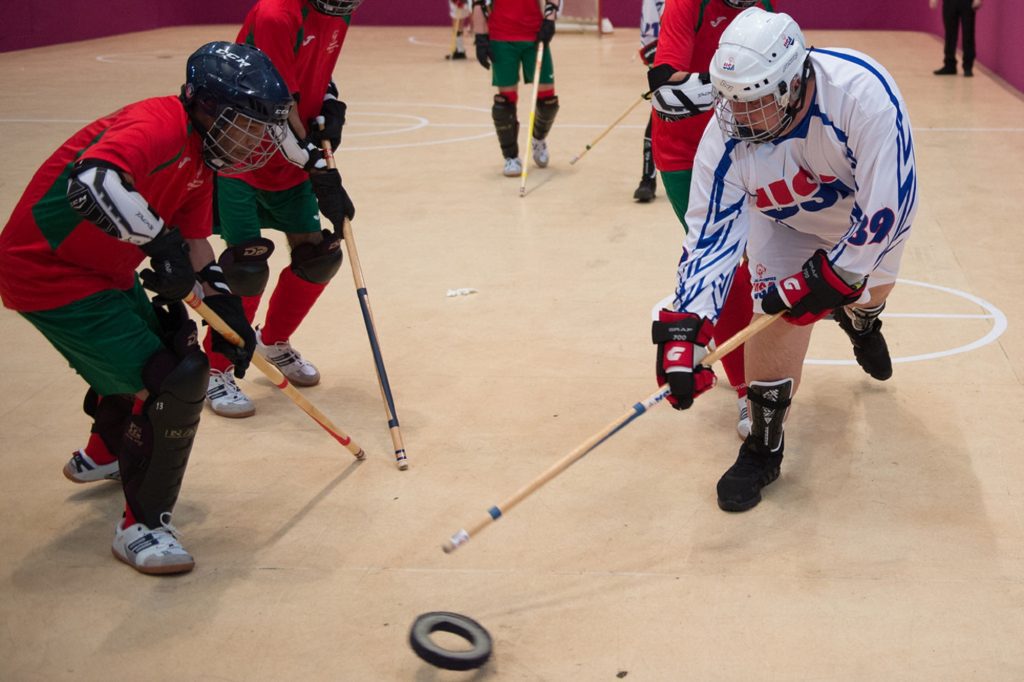
Do you have any interesting hobbies (aside from designing and playing board games) that we should know about? I, for one, am heavily into lockpicking. What got you into the hobby? Would you recommend other people give it a try? Why would you recommend it?
I pretty much live and breathe board games, but I do play floor hockey about three times a week. I played a lot of hockey growing up, needed an outlet for some vigorous, blood pumping activity during the week, and this has been perfect. I’d definitely recommend it to anyone who likes sprinting around with a stick. We have two young kids at home – Soren who’s 10 months and Honora who’s 4 years – and I also teach two to three classes a semester at Webster University. So there’s not much time for me to pursue too many new hobbies right now.
What did you imagine yourself doing when you were younger? Did little John Coveyou ever think that he would be doing what he’s doing right now?
I have actually loved games for a long time! I still remember the first game I designed as a kid… it was made entirely of paper and was set in a sci-fi world. I convinced a bunch of my friends to play it and they decided to trust my taste in games again. It was terrible. Founding and running a game design company definitely wasn’t something that would have occurred to me back then, but looking back, it makes total sense. It’s fun to see that many aspects of what excited me then, still excite me now.
What inspired you to start designing games?
I taught chemistry, biology, and physics for a number of years, and many of my students would come into the classroom inclined to dislike science – they found it boring or intimidating or incomprehensible. But, at the same time, they could spout off all sorts of complicated statistics and figures from sci-fi games that they were playing. So I thought, why not design games that were highly engaging and fun that are also accurately themed around hard science concepts?
Regarding your company, Genius Games, how did it all get started?
I had been designing games as a hobby for about two years while I was working full time as an engineer when I designed Linkage: A DNA Card Game, which I thought was solid enough to launch on Kickstarter. That first Kickstarter was far more successful than I anticipated, and it helped confirm that there was real potential to create a game company to fill this niche for hard science-themed games. I was married and had a newborn baby at the time, but my wife and I had some serious discussions about my dissatisfaction working for a large soulless corporation. So, we decided to take the risk and go for it. I quit my posh engineering job, we sold our house and a car, moved into a tiny city apartment with peeling paint and occasional cockroaches (yes, my wife is a saint!) and I started running Genius Games full time!
What was it like running that very first Kickstarter campaign for Linkage? Was there ever a point where you weren’t certain that it would be successful?
I had done massive amounts of research leading up the Linkage campaign, but you still never really know what you’re getting into with a first Kickstarter campaign!! It was stressful and exhilarating and craziness all at the same time. Linkage fully funded 5 days after we launched, so although I had some hiccups and other difficulties afterward, it was clear early on that Linkage would be successful.
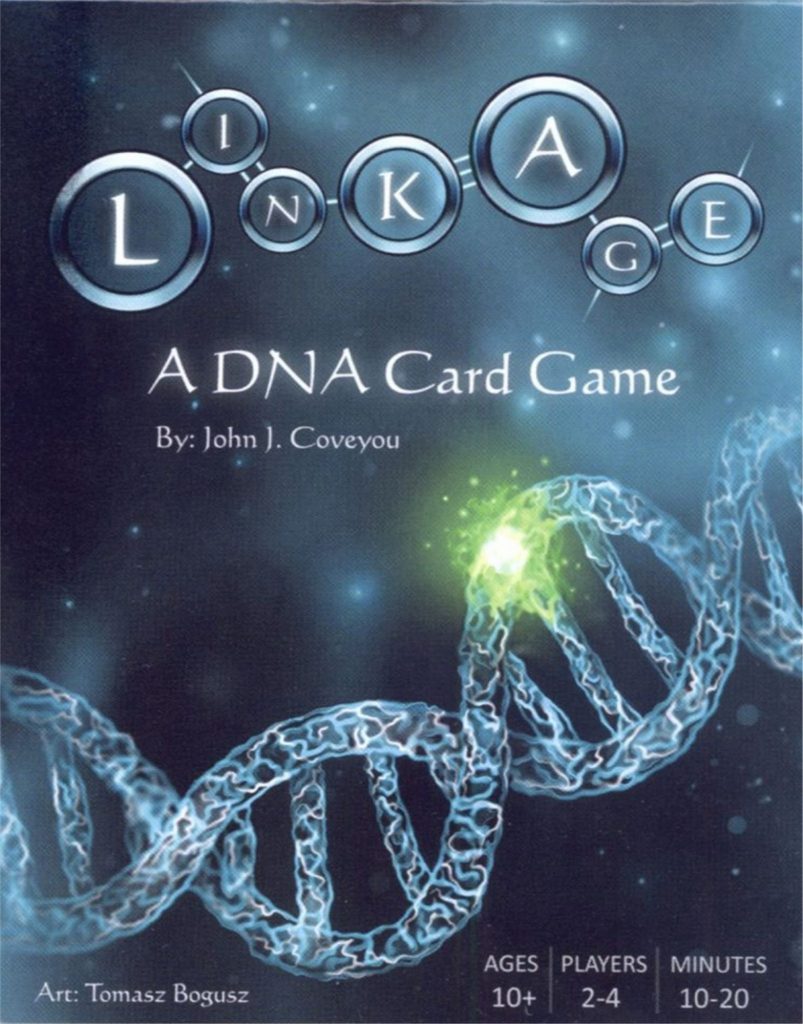
How do you feel you’ve changed as a designer and a businessman since that first campaign?
One way I’ve grown as a designer is in my ability to realize more quickly when one of my designs has potential and when it simply doesn’t and should be scrapped to focus on a better concept. It sounds like such a simple thing, but it’s taken hundreds and hundreds of hours of design to develop that intuition. I also have a much better sense of what I need to be working on next with a design.
As a businessman, one way I’ve changed is to refuse to take an initial “no” as the final answer. When someone in the business world gives me a “no” on something that is vital for Genius Games, I kindly but firmly push back until I either get a “yes” or an “absolutely not”. For many people at these big companies, work isn’t a lifestyle, it’s just their job and it’s easy for them to say no without really understanding. For me, this is how I feed my family. I’ve found that most of the time when I am both kind and persistent, they’ll reconsider my request if only to get me to stop pestering them.
Do you have any sage advice for any our readers that might be thinking about launching their own Kickstarter campaigns?
First, we’ve been creating a YouTube series called “A Kickstarter Launch Story” where I go into great detail about designing Cytosis as well as preparing for and running our Kickstarter campaign. I’ve learned a LOT from Kickstarting projects, and here are a few sound bites:
1) Products that do well on Kickstarter almost always have these three qualities:
# 1. It is something people are willing to pay money for. Don’t think that people are going to just donate money to your campaign out of sheer generosity!
# 2. The product needs to be something that’s not currently available to them. If you can just hop on Amazon and buy essentially the same thing, why would you pay money for it on Kickstarter?
# 3. The project needs to be something newsworthy that people will get excited about, talk to their friends about, and share on social media!
2) Build an audience BEFORE you launch your campaign! People tend to think that Kickstarter is a great way to build an audience from the ground up, but that’s just not true. Spend months or a year before you launch accumulating an audience, email list, and media contacts who will be excited about your project on Day 1 of your campaign!
3) Media attention is crucial for a successful Kickstarter! Here’s how I’ve garnered media attention in the past…
- Identify my target customer
- Identify what blogs and media outlets they are reading
- Sort those outlets based on size (we used Alexa.com ranking to identify size)
- Reach out to the smaller outlets first with a pitch catered to their audience specifically
- Leverage the credibility gained from the smaller outlets when reaching out to larger outlets!
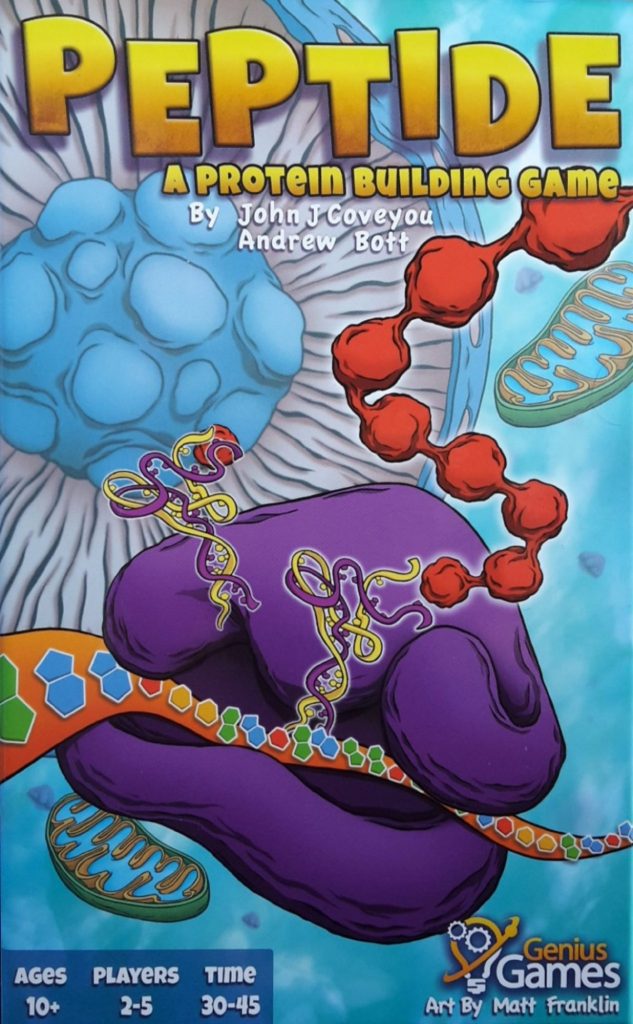
Genius Games is one of the only companies out there making games about science. Was creating these types of educational games always your focus from the beginning or was there something before that?
From the beginning, I knew that I wanted to integrate two of my great loves: games and science. Don’t get me wrong, I love sci-fi themes or ancient world themes, but with my background in science and considering that there wasn’t anyone else creating hard-science gamer games, it was pretty clear to me that hard science was the niche I should try to fill.
When most people hear the term “educational game” their eyes tend to glaze over. Why do you think this is? How do you overcome this?
Unfortunately most purely educational games are not fun to play, have terrible artwork, or are just activities without any interesting decisions to make. Calling something educational will help sell that thing, and consumers have gotten sick of getting ripped off. Today, the word “educational” is almost a bad word in gaming. So we actually don’t refer to our games as educational. We more commonly say that they are great games, designed accurately around hard science concepts. Because of this, teachers have adopted them for use in their classrooms with great success! I think I’ve been able to create something that is both fun for a gamer and accurate for a teacher or scientist because of my background as a scientist, teacher, engineer, AND gamer. I’m also very intentional about asking both gamers and scientists to playtest and critique my games!!
I’ve noticed that there seems to be a narrative that builds throughout your games. For instance, Linkage has the players making an RNA copy of a DNA strand, and the next game in the series, Peptide, has the players using the concepts referenced in Linkage to create peptide chains. Is this narrative arc intentional?
I did intentionally make Linkage and Peptide sibling games, in the sense that Peptide builds on information presented in Linkage. I did something similar with our sibling chemistry games, Ion and Covalence – Ion focuses on Ionic bonding, while Covalence focuses on Covalent bonding. Essentially all of my games are built around core concepts that you’d find in a science classroom.
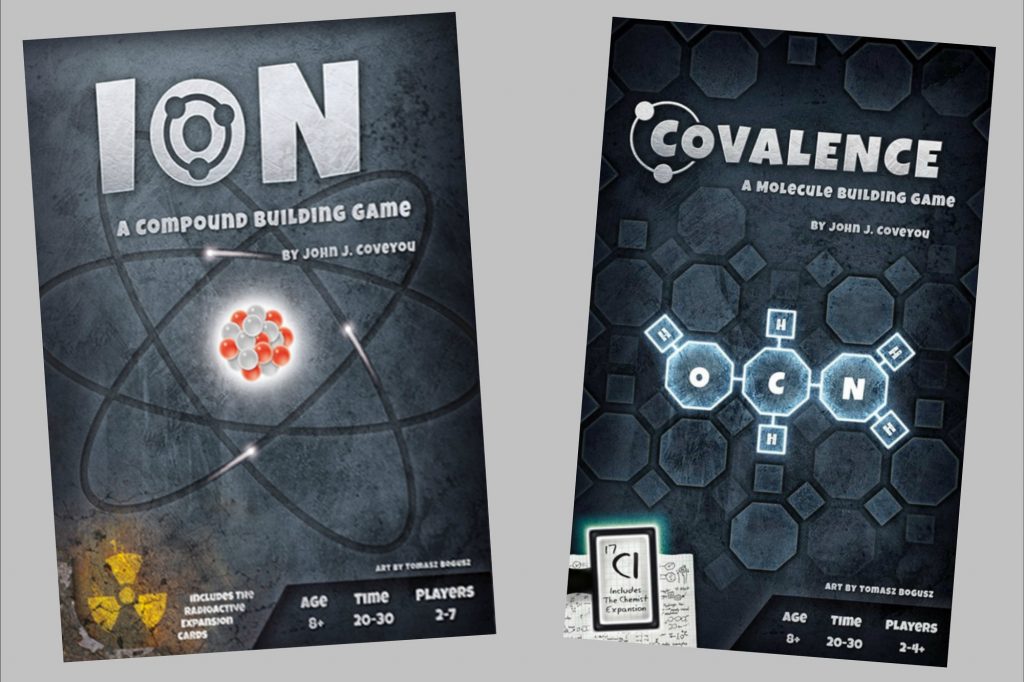
Our review for Cytosis is the most read review on our site. What about this game do you think most resonates with people?
One reason Cytosis tends to resonate with people is the theme. I think cells are fascinating little things and we are all forced to study them in school. Second to that, the worker placement mechanism is a really approachable and satisfying mechanic. Not to mention, we’ve accurately articulated what happens inside a human cell with the game and that is something that has never been done before.
Tell us a little bit about Cytosis. Where did the idea for the game come from?
I think I was actually on a plane when I first put the Cytosis concepts onto paper, still have that sketch in my files. I wanted to gamify cells and the processes they go through because they are a foundational part of any study of biology. Not only that, I’m simply astounded by the processes that are happening in our cells every second of every day! I wanted to combine the power of an exciting gaming experience with a scientifically accurate and tactile way to interact with these complex processes.
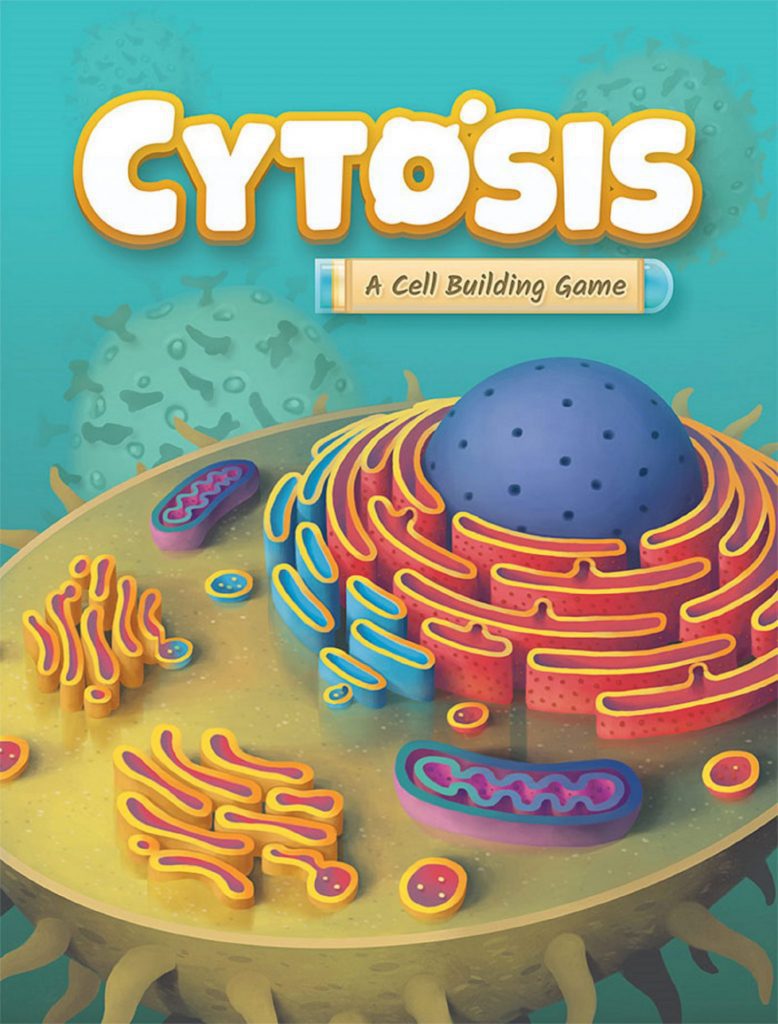
What about your newest game, Subatomic. What kind of game is it? How is it played? Where did that idea come from?
The idea for Subatomic came about because I had the itch to design a game about building atoms. Atoms are another one of those topics in science that everyone is forced to learn about at some point but many find really fascinating. And the game, called Subatomic, is a deck-building game where players try to build these atoms to score points. Each player starts with a small deck of Up Quarks, Down Quarks, and Particle/Wave Duality Cards which they use to create subatomic particles – protons, neutrons, and electrons. Players then use these subatomic particles to build available Elements, and thus score points, or to buy more powerful cards for their deck in order to score points more efficiently later on in the game. There is also a bit of area control throughout the game in the way players compete for end game bonus points.
Recently, Genius Games introduced some new products into its lineup – books for children. What inspired you to come up with this concept? What were some of the challenges that you had to overcome to bring your vision to fruition?
My daughter wasn’t even two yet but really loved being read to and soaked up an incredible amount of information about colors and characters from her favorite books. And we’d read the same books, over and over again and I wanted to find a few new books and ones about science. But, however much I looked, I couldn’t find books for toddlers that introduced science concepts in a way that was playful AND accurate. So, I decided to publish some myself!
One major challenge was boiling the science content down in a way that maintained the accuracy of the science as much as possible, while also conveying it in a way that young kids could grasp it and be intrigued by it. That took innumerable hours. Another huge challenge I quickly discovered is that the book publishing industry is very different from the hobby game industry. You’ve got to get in with a major distributor to really get your books out there, and we’re still working towards that.
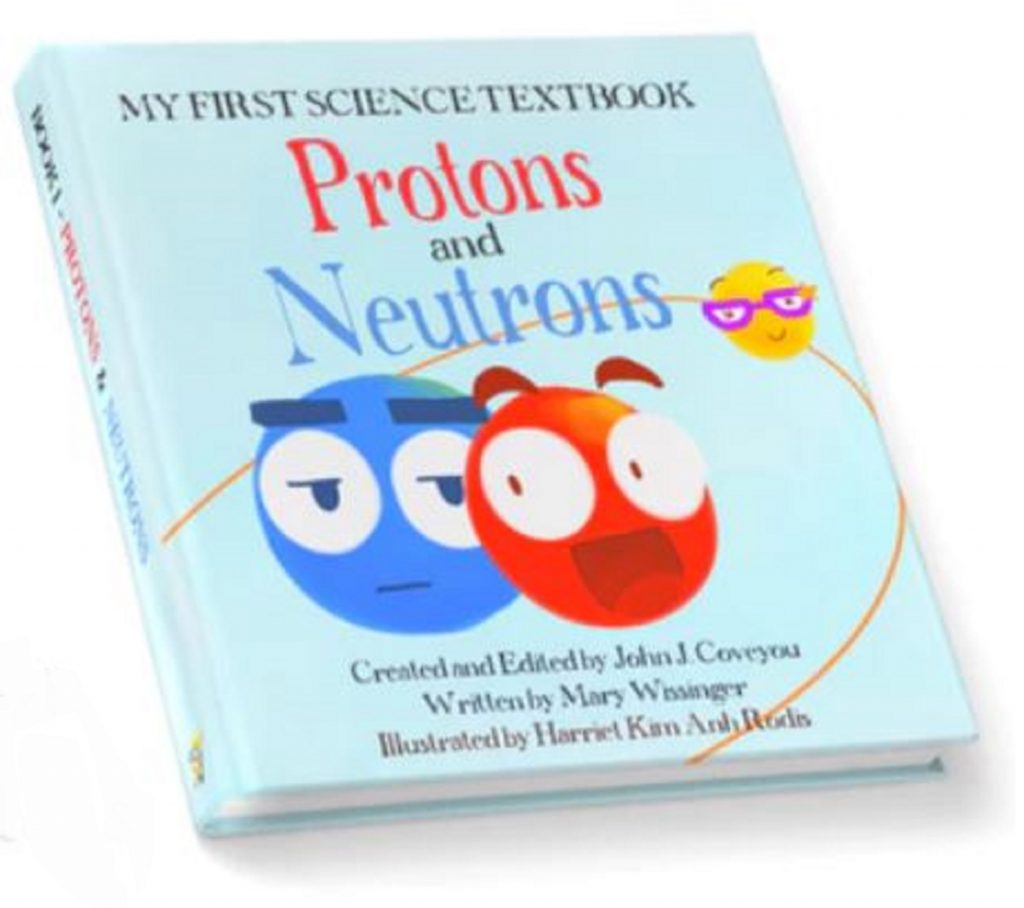
Why Genius Games?
I believe that educational, non-digital, tabletop games would have an incredible impact on our education system by making the learning process more enjoyable and fun; capitalizing on investigation and critical thinking in the learning process and tapping into the familiar inquisitive nature of young learners, harnessing the motivational forces of competition to encourage young learners to push intellectual boundaries and strip the academic sciences of their intimidation, and to make the currently unfamiliar language and paradigm of the sciences more colloquial and commonplace in the young learner’s mind.
Tabletop games, because I believe we are already consumed enough with the digital world. I am not saying this is a bad thing, I am simply saying I want to return attention to learning through interaction with peers, bouncing ideas off others, questioning concepts and thinking critically in a social setting and learning how to learn, learning how to question, learning how to interact, and equipping young learners with tools to do so in a social setting!
Where do you see yourself and Genius Games ten years from now?
That’s a great question and I am not really sure how to answer it. I think I don’t want to be managing the day-to-day business stuff at that point. Maybe even in just a few years, I’d like to stop managing the day-to-day operations. In ten years I’d like the company to be buzzing along so I can focus my attention on just designing science games.
Are you currently working on any other projects? Can you give our readers a sneak peek?
I’m currently designing a few different games. One is a smaller, social bluffing version of Subatomic. I’ve also been working on two big box games for some time; one about Neurons and another about plant biology. There’s also a campaign based game that has some legacy elements about mathematics. All of these games are still in their infancy and they’d be much further along if I didn’t have to spend so much time running the day-to-day operations.
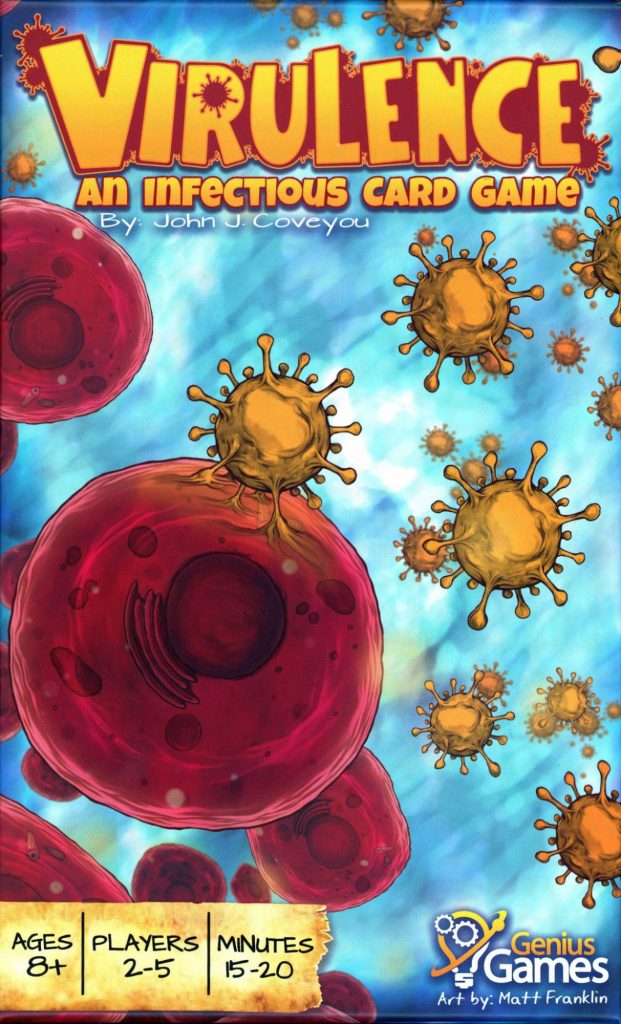
Lastly, according to the Genius Games website, you supposedly have “very specific ideas about the only way to cook a pancake.” Do tell. We’re dying to know.
In my teenage years, I worked at IHOP where I developed my love for the ultimate pancake. The batter has to be the right consistency, so that it doesn’t spread across the pan too fast, and just viscous enough so that the pancake is thick and fluffy, but not too cakey. The griddle must be the right temperature. After pouring the batter, you have to cook that first side until air bubbles are rising to the top and a few begin popping to get that perfect golden brown bake. If the griddle is too hot, this will happen too fast and it won’t cook in the middle. If it’s too low, the pancake won’t be golden brown and you’ll have to cook it too long and it will be dry. Once it’s cooked, you must spread the butter over each pancake while it’s still hot so it melts into the pancake, and you MUST do this before you pour syrup over the pancake. Let the syrup soak in for a good 15 to 20 seconds before actually eating it.
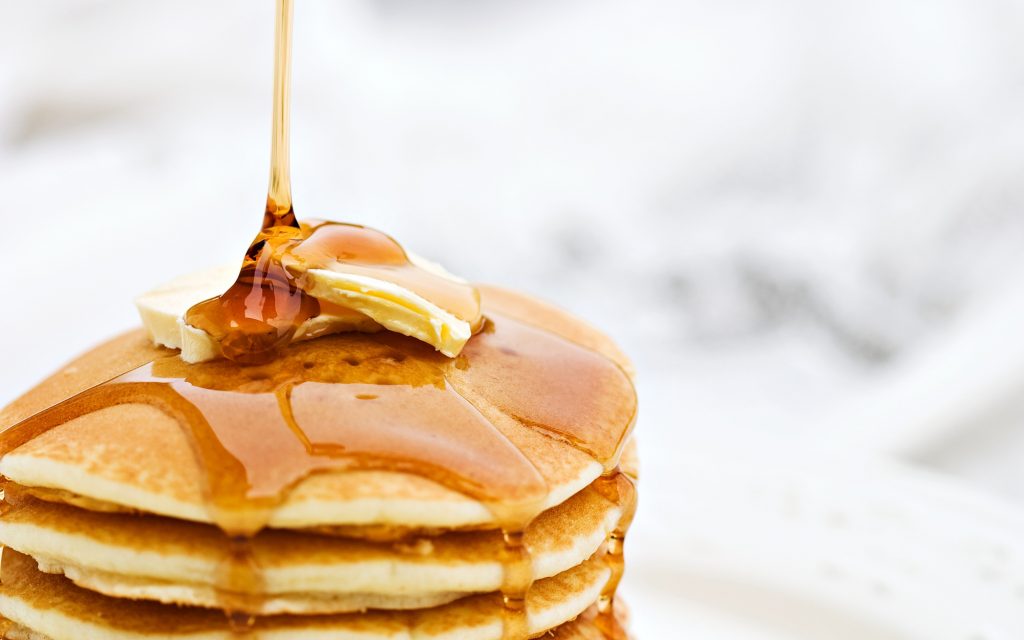
Thanks, John, for taking time out of your busy schedule to answer our questions! John’s newest game, Subatomic, hits Kickstarter on February 6th, so keep your eyes peeled!


